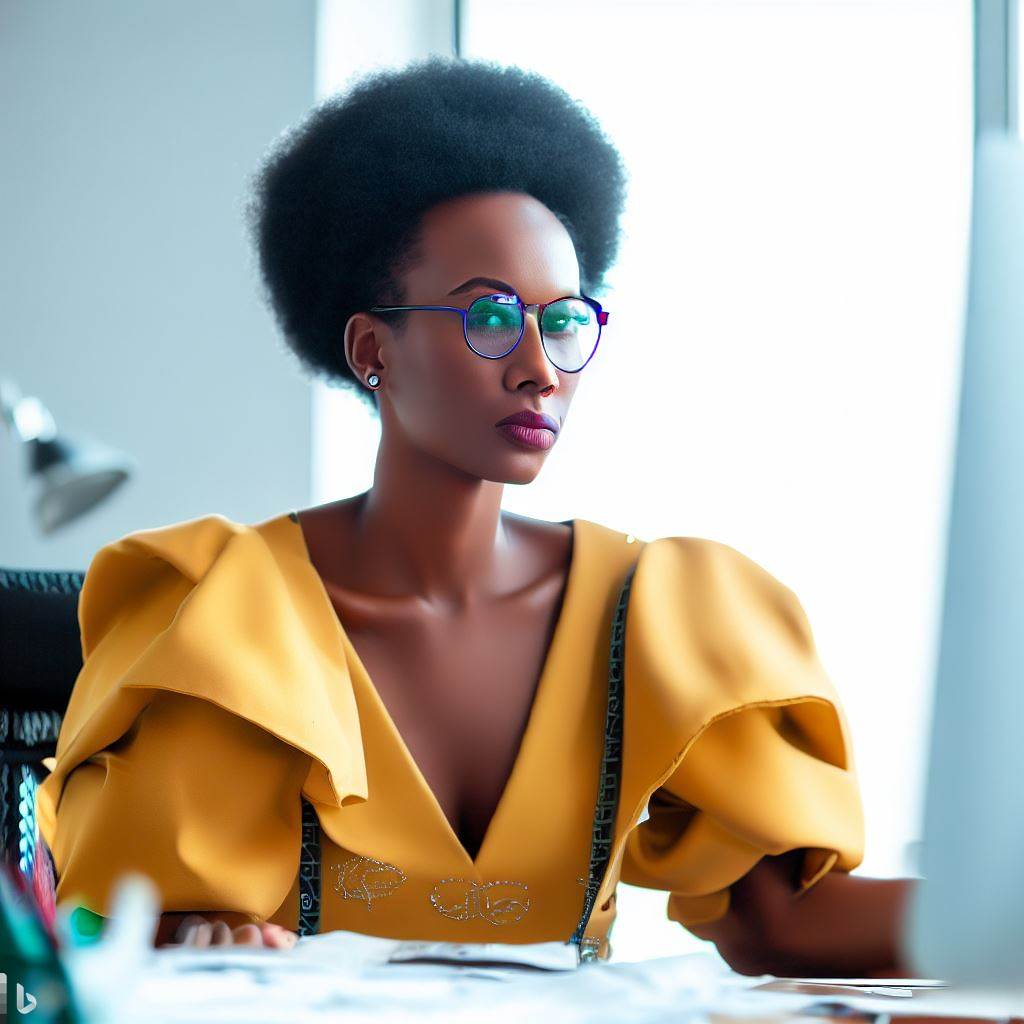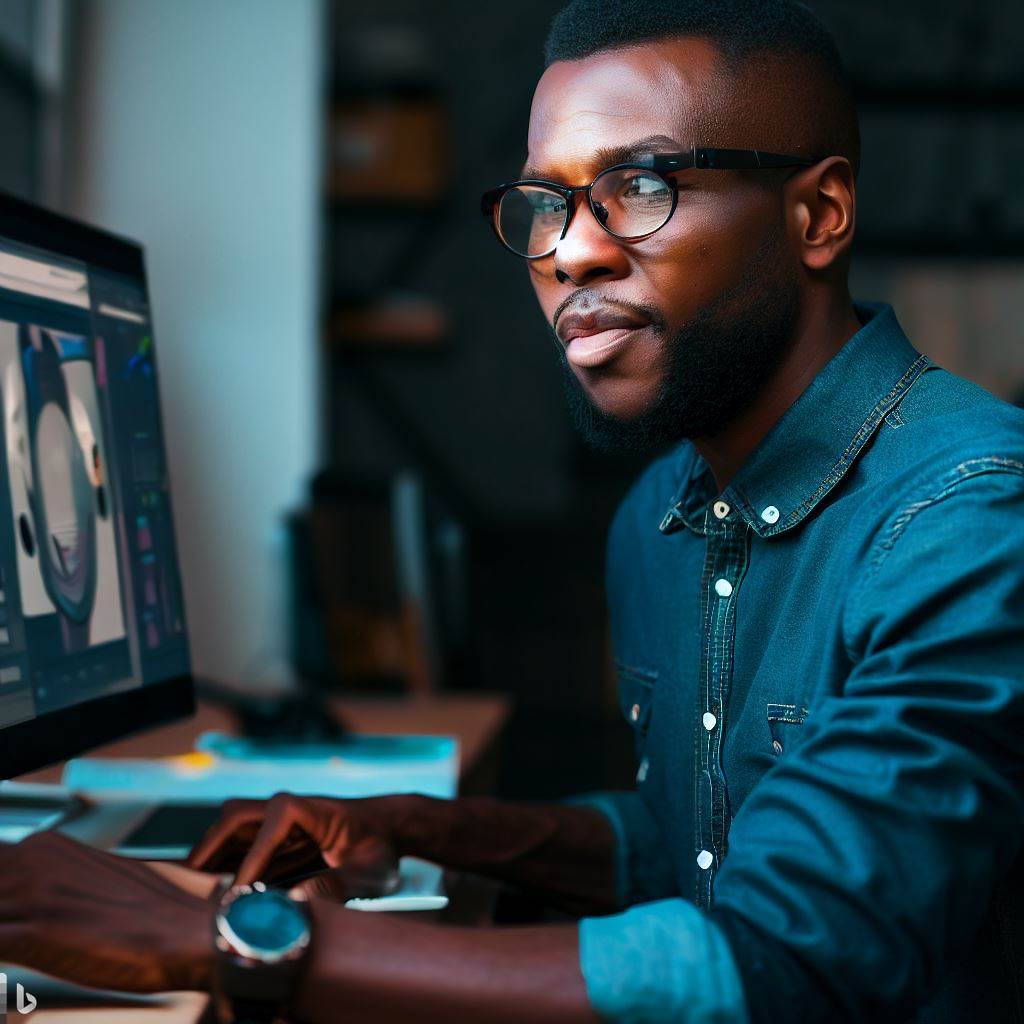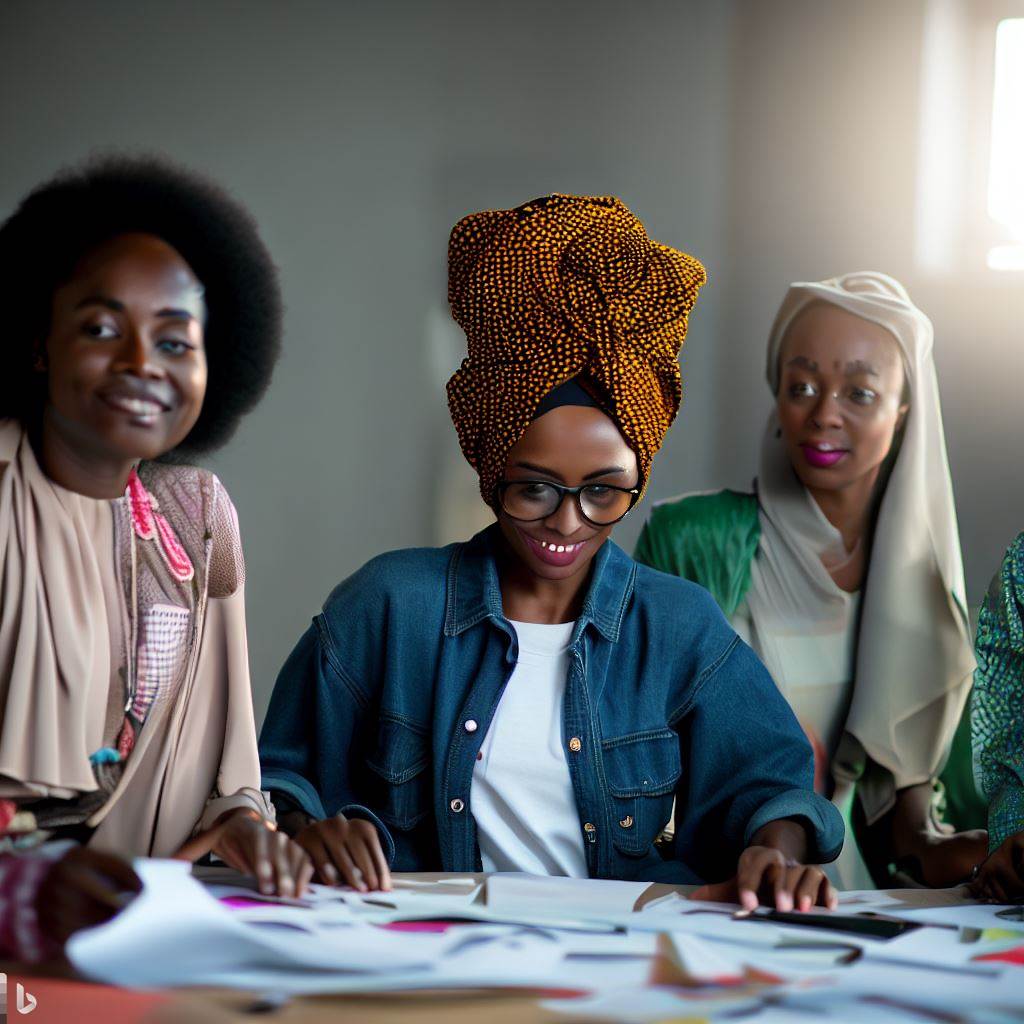Introduction
Fashion design in Nigeria holds great significance, as it is a vibrant and thriving industry.
The country’s fashion designers have gained recognition globally, contributing to the country’s cultural and economic growth.
Licensing and legal essentials play a crucial role in ensuring the protection and growth of the industry.
These aspects help designers establish their businesses legally and protect their intellectual property rights.
By obtaining licenses and adhering to legal requirements, designers can receive the necessary support and benefits from government institutions and protect their designs from infringement.
Licensing and legal essentials also provide a framework for fair competition within the industry, promoting innovation and creativity.
Moreover, it ensures that designers receive proper compensation for their work, enhancing the sustainability of the fashion industry in Nigeria.
It is essential for fashion designers to understand and comply with licensing and legal requirements to establish a solid foundation for their businesses and avoid potential legal issues in the future.
In the following sections, we will delve deeper into the various aspects of licensing and legal essentials in the Nigerian fashion industry.
Read: Education for Fashion Designers in Nigeria: What You Need
Fashion Design Licensing in Nigeria
Having a fashion design license in Nigeria is crucial in today’s competitive industry.
It not only validates the designer’s expertise but also opens doors to numerous opportunities and advantages.
Through strict requirements and regulations, licensing safeguards the interests of both the designers and consumers.
A. Definition and purpose of licensing
A fashion design license in Nigeria is a legal document that grants individuals the right to practice as a fashion designer professionally.
It serves as a proof of qualification and compliance with industry regulations.
B. Requirements for obtaining a fashion design license in Nigeria
- Educational qualifications: Aspiring fashion designers must possess a degree or diploma in fashion design from a recognized institution.
- Experience: Applicants are required to have a minimum of two years of practical experience in the fashion industry.
- Design portfolio: A well-curated portfolio showcasing the applicant’s original designs and creative abilities is necessary.
- Registration with relevant authorities: It is mandatory to register and obtain a license from the appropriate government agency overseeing fashion design.
1. Educational qualifications
Education plays a fundamental role in obtaining a fashion design license.
Completing a recognized degree or diploma equips designers with essential knowledge and skills, ensuring they meet industry standards.
Additionally, formal education provides comprehensive training in design techniques, fabric selection, pattern-making, and garment construction.
2. Experience
Experience is another key factor in the licensing process.
Working in the fashion industry allows designers to develop their creative abilities, gain practical insights, and refine their design aesthetic.
Through internships, apprenticeships, and employment in reputable fashion houses, aspiring designers can accumulate the necessary experience required for obtaining a license.
3. Design Portfolio
A design portfolio is essential for showcasing the designer’s talent and creativity.
It should include a collection of their best works, demonstrating a unique design style and attention to detail.
A strong portfolio increases the chances of acquiring a license and impresses potential clients and employers.
4. Registration with the relevant authorities
Finally, registration with the relevant authorities is mandatory for obtaining a fashion design license.
In Nigeria, this involves submitting the necessary documents, paying the required fees, and adhering to specific regulations set by the government agency responsible for licensing fashion designers.
By completing the registration process, designers gain official recognition and the legal right to practice fashion design.
C. Benefits of having a fashion design license
- Legal protection: Holding a fashion design license offers legal protection against copyright infringement and design theft.
- Credibility and trustworthiness: Clients and industry professionals have more confidence in licensed designers due to their official recognition.
- Access to industry opportunities: Licensed fashion designers gain access to exclusive events, fashion weeks, and collaborations.
- Promotion of ethical practices: Licensing encourages adherence to ethical standards, such as fair labor practices and sustainable fashion.
Basically, licensing is a crucial aspect of the fashion design industry in Nigeria.
It establishes professional standards, protects designers’ rights, and promotes ethical practices.
By fulfilling the educational qualifications, gaining experience, curating an impressive portfolio, and registering with the appropriate authorities, fashion designers can obtain a license that grants them credibility, legal protection, and access to a wide range of industry opportunities.
Read: Fashion Design in Nigeria: A Career with Global Impact
Legal Essentials for Fashion Designers in Nigeria
Fashion designers in Nigeria, like their counterparts around the world, face various legal challenges and concerns regarding their intellectual property (IP) rights.
In order to safeguard their creativity and business interests, it is essential for fashion designers to understand and implement proper legal measures.
A. Intellectual Property Rights (IPR) protection
- Copyrights: Fashion designers should consider registering their original designs with the Nigerian Copyright Commission to gain legal protection from unauthorized copying or reproduction.
- Trademarks: Applying for trademark registration with the Nigerian Trademarks, Patents and Designs Registry can help protect brand names, logos, and symbols associated with their fashion business.
- Patents: While patents are usually associated with technological innovations, fashion designers can also seek patent protection for new and unique fabric technologies or manufacturing processes.
- Trade secrets: Fashion designers should take precautions to keep their trade secrets confidential, such as design techniques, sourcing methods, or proprietary materials.
B. Importance of IPR protection for fashion designers
- Preventing infringement: By securing IP rights, fashion designers can take legal action against individuals or companies that copy or imitate their designs, preventing financial losses and preserving their reputation.
- Safeguarding original designs: IPR protection encourages fashion designers to invest in creating new and innovative designs, knowing that their creations will be legally protected and not easily replicated by competitors.
- Enhancing business value: Fashion brands with a strong IP portfolio are more attractive to investors and potential business partners, as they demonstrate the existence of valuable assets and market exclusivity.
C. Steps to protect intellectual property
- Registration process: Fashion designers should avail themselves of the applicable registration processes for copyrights, trademarks, patents, or trade secrets to establish legal ownership and exclusive rights.
- Documenting designs: Keeping comprehensive records of design development, including sketches, prototypes, and production processes, helps in proving originality and serves as evidence in case of infringement disputes.
- Monitoring and enforcement: Regularly monitoring the market for potential infringement and taking prompt legal action against infringers is necessary to maintain the exclusivity of one’s designs and prevent unauthorized use.
Generally, fashion designers in Nigeria must prioritize the protection of their intellectual property rights through measures like copyright registration, trademark applications, and trade secret management.
By doing so, they can better secure their original designs, prevent infringement, and enhance the value of their fashion businesses.
Read: Challenges and Rewards of Fashion Design in Nigeria

Discover More: The Role of Graphic Designers in Nigeria’s Advertising Industry
Challenges and Pitfalls in Fashion Design Licensing
A. Lack of awareness and understanding of licensing process
- Many fashion designers in Nigeria are not aware of the importance of licensing their designs.
- They lack knowledge about the process and its benefits, which leads to missed opportunities.
- Without proper education, designers may unknowingly engage in unlawful practices and face legal consequences.
- It is crucial for designers to learn about licensing to protect their rights and benefit from their creations.
- Workshops, seminars, and educational campaigns can help raise awareness and foster understanding in the industry.
B. Limited government support and leadership
- The Nigerian government has not placed enough emphasis on supporting and regulating fashion design licensing.
- There is a lack of policies and frameworks in place to ensure proper licensing procedures.
- Without government support, designers face challenges in navigating legal processes on their own.
- The government should play a more active role in promoting licensing and protecting intellectual property rights.
- Collaboration between the government and fashion industry stakeholders can lead to positive change.
C. Counterfeit products and intellectual property theft
- Nigeria’s fashion industry is plagued by the proliferation of counterfeit products.
- Unlicensed designs are illegally reproduced and sold, resulting in lost revenue for designers.
- Intellectual property theft is rampant, putting the originality and creativity of designers at risk.
- Enforcement agencies must be proactive in cracking down on counterfeiting and protecting designers’ rights.
- Designers themselves need to be vigilant and take legal actions against those who infringe upon their intellectual property.
D. Issues related to fashion design collaborations and contracts
- Collaborations and contracts play a crucial role in the fashion industry, but they can be challenging.
- Designers often encounter issues such as copyright ownership, payment disputes, and breach of contract.
- Without proper legal guidance, designers may face difficulties in resolving these issues.
- It is essential for designers to seek legal advice and carefully negotiate contracts to protect their interests.
- Education on contract law and legal best practices can help minimize conflicts and ensure successful collaborations.
Essentially, the challenges and pitfalls in fashion design licensing in Nigeria are substantial.
There is a need for increased awareness, government support, and enforcement measures to protect designers’ rights.
Addressing these issues will not only benefit individual designers but also contribute to the growth and development of the Nigerian fashion industry as a whole.
Read: How to Start a Fashion Design Business in Nigeria
Conclusion
Fashion design licensing and legal essentials play a crucial role in Nigeria.
By obtaining proper licensing, designers can protect their intellectual property rights and ensure their work is not unlawfully copied or reproduced.
The significance of these measures cannot be overstated.
It is highly encouraged for all fashion designers in Nigeria to actively pursue licensing and take the necessary steps to protect their creations.
By doing so, they can safeguard their designs, brand identity, and reputation in the industry.
To further enhance their understanding of fashion design licensing and legal essentials, designers are urged to engage in continuous research and seek guidance from relevant authorities.
This will empower them with the knowledge and resources required to navigate the legal landscape effectively.
By educating themselves and staying informed, fashion designers can thrive in the Nigerian fashion industry, confident in the legal protection of their innovative designs.
Let us work together to create a supportive environment that values and respects intellectual property rights in fashion.




